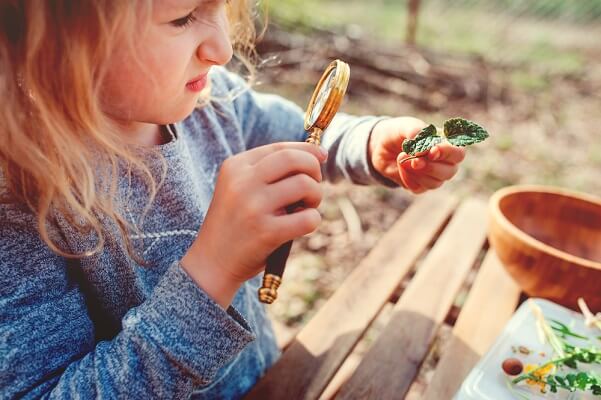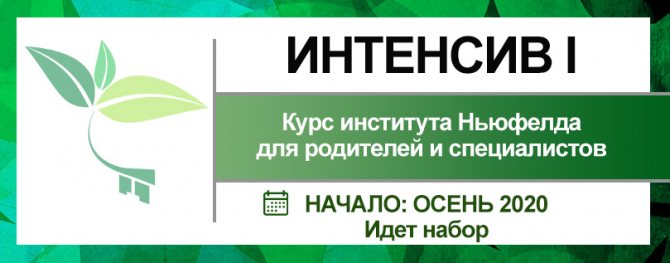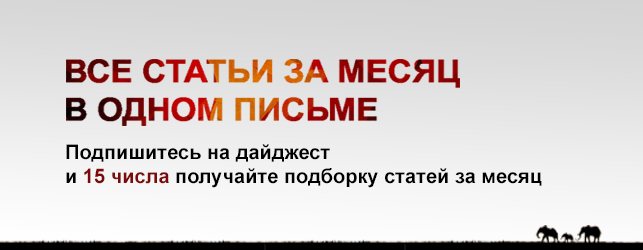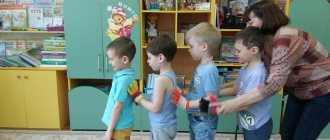Today there are a huge number of different development methods and systems, including non-standard ones, for preschool development and upbringing of a child. Every year - more and more. It is not surprising that this causes a mixed reaction among professionals: there is a Federal State Educational Standard, there are programs, what other “lettergrams” and “spiritual approach to the development of a child’s free personality”? There is definitely a subject for debate. Our expert Marina Bolotova, the scientific director of preschool educational organizations, has carefully studied many popular and original modern methods due to her work. This article is a specialist’s answers to the TOP 5 alternatives to the classical approach. So as not to miss the important things behind the emotions.
All the methods we talk about in this article are focused on the environmental approach: the child is in a specially organized environment that best satisfies the child’s needs.
Montessori pedagogy
Technology invented by teacher Maria Montessori. Initially, she conceived the approach to work with “special” children, but then transferred it to everyone else. The main idea of the approach is that every child has a powerful potential for development; you just need to create conditions using a special environment and not disturb the child.
What principles does it work on?
- A special environment is created, divided into five zones. Practical for the development of everyday skills, sensory with toys of different shapes, sizes, colors, mathematical for the development of counting skills and familiarity with geometric shapes and symbols, language zone for learning letters and syllables, space zone for getting to know the outside world and the mysteries of nature.
- Classes are held in different age groups. Older children interact with younger ones: they pass on their skills to the younger ones and not only teach them, but also develop their skills even better.
- Teachers do not impose or forbid anything on the child - he makes the choice to play with dolls, draw or jump and run. The teacher only presents the material and reveals it as much as possible.
What goals does the child achieve?
- Learns independence. Free choice of activities also develops self-confidence and self-confidence.
- Learns to respect others. Children work and play quietly to respect the time and space of others. You can let off steam in a special “motor” zone. Children also clean up toys after themselves and follow the principle “whoever takes it first gets to play.”
- He studies mathematics, learns about nature and culture. This is helped by working in different zones.
- The teacher must respect children and their choice: give them the opportunity to play and choose the pace of classes.
- The teacher must be able to create an environment. Many toys are made by hand from natural materials.
- The teacher must be able to captivate children. It is he who presents materials for games and activities, and he serves as a model in group creative activities.
Methods
Educational methods are those methods by which the purposeful influence of an adult (parent, educator, teacher, relative, psychologist) is carried out on the consciousness and behavior of children.
The choice of parenting methods largely depends on age. For example, to organize the activities of preschoolers, it is more advisable to use illustrations, and for older ones - instructions.
Reggio pedagogy
Italian technology, based on the ideas of Vygotsky and Maria Montessori. The author of the technology is Loris Malaguzzi. Malaguzzi believed that the child had at least 100 languages, but 99 of them were stolen. Much in a child’s life happens at the direction of adults, even holidays. The main postulate is that the environment must meet the needs and capabilities of the child.
What principles does it work on?
- A separate program includes space for the child. He can even retire and do only what he wants.
- The parent is completely immersed in the work of the kindergarten. He sometimes goes to kindergarten with the child, helps, and becomes a partner.
- There is no assessment and control - no final tests. The Reggio teacher uses observation, records the results of the child’s work, but does not give an assessment.
What goals does the child achieve?
- Learns partnership. Children are taught to work in groups so that they learn to negotiate, cooperate, and get used to the fact that they are “not alone.”
- Studies culture. Classes are not limited to the kindergarten environment: children are taken on excursions, helped to understand relationships between people, the rules of society, and traditions.
- Learns free choice. The child himself chooses the pace of classes and the materials with which he will play.
What should a teacher be like?
The teacher must follow six rules:
- Respect the child and look him in the eye.
- Explain the rules and ask a question. Only this way, and not the other way around.
- Not “wrong”, but “different”.
- Offer choice and don't rush.
- Learn in any situation.
- Fantasizing is more important than reading.
General recommendations for parents
Despite the fact that at different times in different countries and civilizations there were specific approaches to how to raise children, there are several general postulates that everyone who takes part in the development of a child’s personality should constantly remember.
If you want to foster independence in your child, give him at least a little freedom. At 3 years old, let him try to tie his shoelaces and put on a hat, and at 15, let him cook a family dinner or get a job in the summer to earn money for his phone. Overprotection and excessive total control in this matter are fraught with the formation of a dependent person who is not adapted to life.
If you want to raise him to be self-confident, remind him more often of how self-sufficient he is. Emphasize your merits, praise for the slightest achievements. But at the same time, from childhood, learn to correctly perceive criticism addressed to you. This will allow you to avoid internal complexes and help you achieve your goals. At the same time, do not forget to work on yourself. If a mother constantly talks out loud about how fat she is and how bad everything is for her, you shouldn’t expect self-confidence and success from your children.

If you want to raise a leader, instill organizational skills from early childhood:
- learn to formulate your own opinion about a cartoon you watched, a book you read, or an action you did;
- teach public speaking;
- entrust household chores;
- make him responsible for a specific event;
- help him find a passion, a hobby through which he can reveal his creative potential;
- ensure meaningful communication with peers;
- discuss and analyze each failure.
If you want to develop leadership qualities in your child, start from early childhood, otherwise it will be too late.
Voskobovich games
Educational games created by physicist-engineer Vyacheslav Voskobovich. They represent a developing environment of different zones and elements, united by one fairy-tale plot.
What principles does it work on?
- It is based on three principles: interest, knowledge and creativity. This builds cognitive and research skills.
- Games are developed in accordance with the interests of the children. Each can be used by children from 2 to 7 years old; for younger children the tasks are simpler.
- The developmental environment “Purple Forest” has been developed for games, with several zones in which the child fulfills certain needs.
What goals does the child achieve?
The main goals of technology are learning new things, developing the ability to observe, building confidence, a harmonious approach to the development of emotionality, imaginative thinking and logic.
What should a teacher be like?
- The teacher must understand the material: know the games, be able to build a plot.
- The teacher must involve the children in the game; some time must be spent getting to know its rules.
- The teacher does not evaluate the completion of assignments. Each age has its own level; if you can’t cope, you can move on to an easier one.
Literature
If difficulties arise during the upbringing process, parents should not let the situation take its course. Firstly, you should not be embarrassed to ask for help from a professional - a family or child psychologist or psychotherapist will help solve any problem. Secondly, there are thematic, very interesting books that will certainly tell you a lot of new things about the child’s psyche. What can be recommended from the literature on this issue:
- G. P. Shalaeva and O. G. Sazonova “Rules of behavior for well-mannered children.”
- M. Ibuka “After three it’s too late.”
- O. Makhovskaya “100 parenting mistakes that are easy to avoid.”
- Yu. Gippenreiter “The most important book for parents.”
- E. Belonoshchenko “Born with character” and others.
The Constitution of the country in which the family lives should also become a reference book. For example, in the Russian Federation, the responsibilities of parents regarding education are enshrined at the legislative level. They are contained in Article 44 of the Federal Law “On Education in the Russian Federation”. Date: 12/29/2012. Search under number 273-FZ. The latest updated version is from 05/01/2019.
In the same way, the responsibility of parents for raising children is spelled out at the legislative level in the “Code of the Russian Federation on Administrative Offences”. Date - 12/30/2001. Search under number 195-FZ. The latest updated version is from 05/29/2019.
Whatever child you want to raise, the main thing is to do it without yelling and punishment. Only by respecting and loving him is it possible to grow a full-fledged, self-sufficient, self-confident person.
Dewey technology
John Dewey developed a practice-oriented approach. Dewey believed that a preschooler should engage in play and work activities, which gives him the necessary life experience.
What principles does it work on?
- Everything that happens to a child must be practically oriented. There is no need to overload the brain with unnecessary knowledge; you need to teach how to work with your own hands, and apply acquired knowledge and skills in other situations.
- Education should be aimed at gaining experience, which can only be accumulated by the child himself. Thinking is only a tool for solving problems. The child explores the world around him and ultimately wants to learn the necessary skills and experience them.
- In addition to work skills, geography and history are important. Geography helps to learn about the world around us, history helps us learn about the world and culture of people.
What goals does the child achieve?
- Gains life experience. The child learns to solve problems and develops skills.
- He understands geography and history. This helps to understand the world around us and people with their relationships.
- Learns to be entrepreneurial. This is facilitated by the projects that the teacher launches with the children.
What should a teacher be like?
- Must have strong instrumental skills, such as working with hands. Without this, he will not teach the necessary skills to children.
- Does not compare children with a friend - competition is prohibited in technology. The child is compared only with himself.
- Teaches children project activities. Projects help children gain experience and learn skills, as well as collaborate with others and develop their own entrepreneurial spirit.
Stages of personality formation in preschool age
The formation of personality implies the development of cognitive processes and moral qualities, the formation of a worldview and self-awareness, the development of independence in activity and social activity. This is not a complete list of those features that characterize a person’s personality, but they are the main driving forces in the formation of a child’s personality.
The listed components are laid in preschool age. The active start can be considered 3 years of age, when the child’s self awakens. By the beginning of schooling, personality formation goes through two important stages that contribute to the development of basic age-related characteristics:
- Stage of becoming independent
- Stage of formation of personal initiative.
The first stage of a preschooler’s personal development is aimed at gradually reducing physical dependence on an adult and acquiring independence. The baby repeatedly announces to his parents and grandmothers his need to act on his own. “I myself” sounds in those activities that are interesting to the baby.
The child tries his best. Such an understandable action as folding toys does not interest the baby at all, since it is understandable and feasible. But pouring soup into a plate using a ladle or pinning a pin on a blouse is incredibly exciting!
The second stage involves a transition from the choice that an adult offers the child to the manifestation of one’s own initiative. This is a significant expansion of the boundaries of development. “I want to put together this construction set model,” “I will also water the flowers,” “You know what game I came up with...” - the initiative of older preschoolers extends to all types of activities.
At these stages of a preschooler’s personal development, numerous changes occur. Moral judgments and criteria are developed: what is possible, what is not, what is good and what is bad. Emotional and volitional qualities develop. But in the sphere of personality development, the main achievement of preschool age is independence and initiative.
Personal developments of preschool age
Let us consider in more detail what new formations are formed in the personal development of younger preschoolers, and then in older preschool age.
Changes are especially noticeable during critical age periods. There are two of them in preschool childhood: the 3-year-old crisis, which replaces early childhood with preschool, and the 7-year-old crisis, which precedes the school period.
The child is persistent in order to be allowed to do a certain action on his own. Having received the consent of the elders, the child most often faces a new obstacle - the matter cannot be argued! The button doesn’t fit into the buttonhole, the bag doesn’t rise, the tower of cubes falls apart...
The difficult task ahead is not to give up, but to try again and again until it succeeds. Therefore, such new formations as independence and will appear at the same stage of personal development.
For many children, it is easier to show initiative than determination. This quality is cultivated if adults encourage the cognitive activity of a preschooler. The child became interested in how a sprout emerges from a seed and took the initiative to plant it next to a houseplant. But then you need to water regularly and wait patiently for the sprout to hatch.
In such situations, the preschooler more often needs support in order to keep the goal in the field of his attention and interest. The child needs the same support if actions are unsuccessful.
Along with initiative, it is very important for adults to support the child’s desire for a goal, since this is a valuable personal quality.
Becoming a social person
If we want our children to realize their potential as global citizens, then they will have to consider the other person's opinion without losing sight of their own point of view. Despite countless opposing and conflicting views, they need to be able to stick to their identity, their ideas, opinions, preferences and intentions. Being a social person means being able to cooperate, understand fairness and take into account the context in which they find themselves. These qualities underlie healthy moral development and the ability to use words to communicate your thoughts and feelings to others.
Since 3-4 year olds are in the process of forming their personality, becoming a social being is not yet relevant for them.

Individuality must come before community, so the focus of young children is usually on themselves. Sometimes parents of little ones may worry that their child is too self-centered, but this is nature's intention - they must first learn to understand themselves before being influenced by the many views and points of view of other people.

Their brains are still developing, so they often lack patience, and they understand justice as an opportunity to do things their own way. They do not interact well with others, and it is completely natural for them to prefer loneliness and disappear into the world of their own fantasy.
As a child approaches the ages of 8-11, he becomes increasingly able to understand irony and paradox.
They finally get the jokes, they understand the puns, and they can now be more patient when they feel frustrated. With ideal brain development, by this time they will be able to experience mixed feelings and take into account not only their own point of view, but also that of others. They can show signs of true cooperation and consideration, and are also capable of courageous actions. If development is on the right track, they will interact better with others and work to resolve problems and conflicts. They will demonstrate more balance and stability in the expression of emotions, as their ability to reflect and understand what is happening to them has increased.
When a child begins adolescence, it seems that he has taken a step back, become unpredictable and less emotionally stable. This occurs due to changes in the brain and due to increasing self-awareness, which can overwhelm them with emotions and new experiences.
By the age of 14-15, ideally, balance emerges and emotional stability returns. Teenagers must increasingly begin to see the world not through a single point of view, but be able to take into account a variety of events and problems. The development of moral judgment and awareness of themselves as part of a larger society will begin to creep in from time to time in their statements or ideals. Their capacity for courage will allow them to confidently move towards their goals.
By the end of adolescence, the child must become ready for life in society and able to benefit it.

Individuality cannot be taught or imposed on our children; it must be nurtured, cultivated, preserved and protected. Realization of personal potential depends on our ability to evolve into individual, adaptive, and social individuals. Each of us has the seeds of a mature future within us, but it takes time, patience, understanding and the right kind of care for them to sprout.
Carl Jung, a Swiss psychiatrist, had a great idea that growth can only be appreciated by looking back at it, not while it is happening. Our children have the prospect of a mature future for which the adults in their lives act as midwives.
Deborah McNamara Translation by Irina MatsenkoSource
Dear readers! To continue getting acquainted with the topic of unlocking personal potential, as well as to delve deeper into the topic, we suggest you read this collection of articles.
Gordon Neufeld on personal potential
About unlocking inner potential
About periods of development
How a child's personality is born
On the importance of rest for development

Incentive sphere
Preschool childhood is a key and very important period of personality development. It is now that the formation of the main motives that will encourage the child to activity takes place. What is its specificity?
Motives appear related to the fact that the child strives to join adult life, to become more like his parents or their friends, to live like them. Often such motives are intertwined with the game, so kids often have fun playing “Mothers and Daughters”, “Shop” and the like.
In addition, we highlight the following motives:
To be better than peers, a competitive element. Establishing and maintaining positive relationships with adults
It is extremely important for a child to be singled out, praised, and rejoiced at his achievements. Moral motives are obedience, helping others, the desire to somehow please them. The motives for learning are the acquisition of knowledge, skills and abilities. It is common for a preschooler not to wait for praise, but to make certain efforts to receive it
In addition, it is during this period that a hierarchy of motives arises, their subordination
It is common for a preschooler not to wait for praise, but to make some efforts to receive it. In addition, it is during this period that a hierarchy of motives arises, their subordination.
Education as management of personality development
The teacher’s task is to implement a set of means by which the desired result is achieved. They organize and form methods of influencing it. This is management of personal development. Education implements the whole gamut of management functions: goal setting, planning, motivation, organization, analysis of results. In this sense, we can say that education is the process of managing the development of personality, which is divided into:
- Physical development (physical education). Managing this process is the organization of methods, skills, knowledge necessary to improve physical fitness and physical health. While developing physically, a person improves his health by absorbing knowledge about exercise, the natural forces of nature, the rules of hygiene and his own body, which are passed on from generation to generation.
- Mental development. It is inextricably linked with the physical, therefore it cannot exist separately. Mental development shapes all spheres of personality: motivational, intellectual, emotional, volitional, objective, existential and self-regulatory. All these areas together represent holistic formation, harmony, individuality and versatility.
When raising a child, it is worth remembering that we are raising an individual. Remember what it is. Remember her individuality. When organizing the educational process, try to guide the child, and not put into his consciousness all that educational mess that you, of course, read in books and on the Internet. The main forms of education - example, conversation, influence, stimulation - use them in equal parts, adding the most important factor - love - to each educational moment. Only with love can we grow into a truly harmonious, developed personality.



